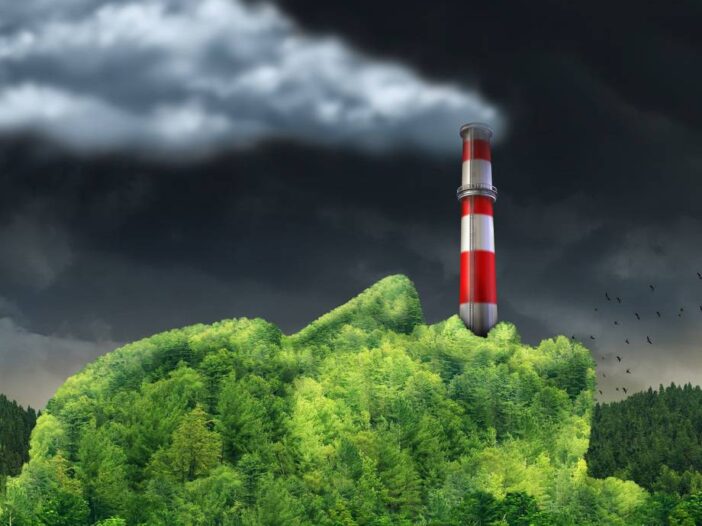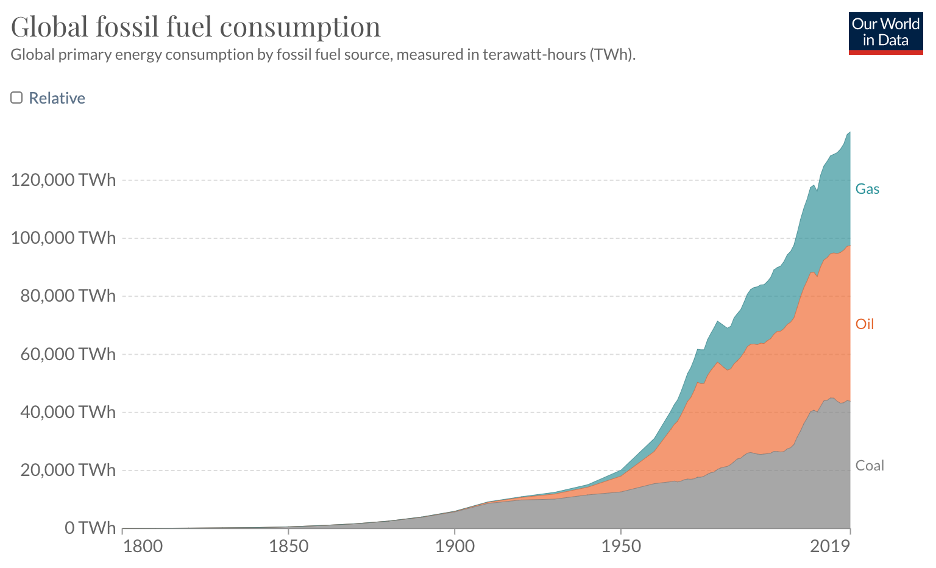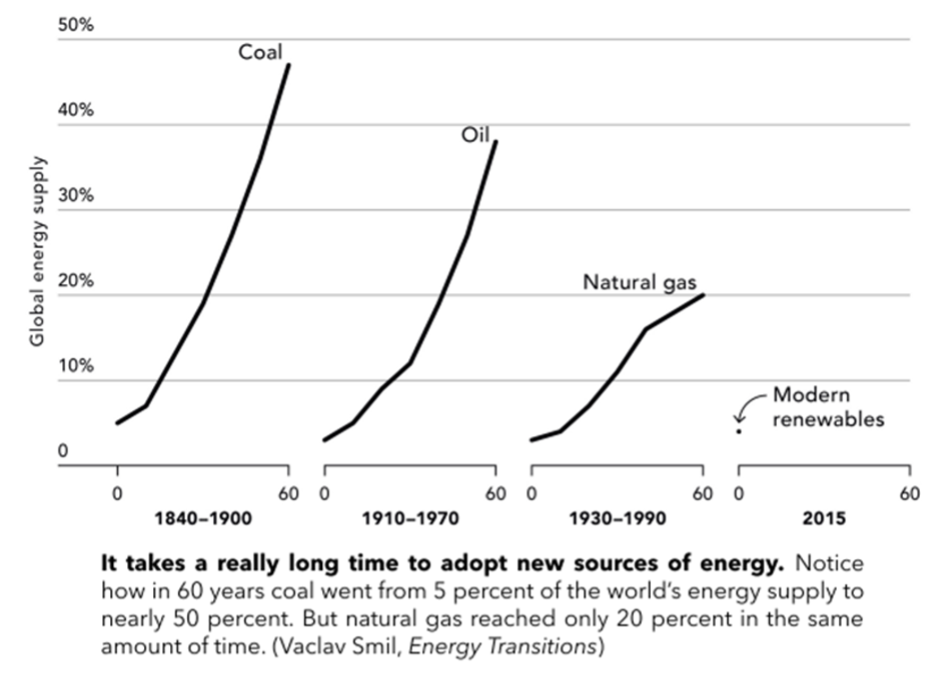In 2005, writer David Foster Wallace gave a commencement speech at Kenyon College.
The speech is famous for a story Wallace shared:
‘There are these two young fish swimming along, and they happen to meet an older fish swimming the other way, who nods at them and says, “Morning, boys, how’s the water?” And the two young fish swim on for a bit, and then eventually one of them looks over at the other and goes, “What the hell is water?”’
More than a decade later, Bill Gates published How to Avoid a Climate Disaster, a book on the need to curb our greenhouse gas emissions.
In it, Gates cited Wallace’s story and argued fossil fuels are our civilisation’s water.
‘Fossil fuels are like that. They’re so pervasive that it can be hard to grasp all the ways in which they — and other sources of greenhouse gases — touch our lives.’
Fossil fuels power our world
Whether we’re aware or not — and whether we like it or not — our world runs on fossil fuels.
Oil, natural gas, and coal still account for about 80% of the world’s primary energy inputs.
And while these inputs may be a small fraction of global GDP, they support all other economic activity.
Here’s how Bill Gates explained it in his book:
‘Did you brush your teeth this morning? The toothbrush probably contains plastic, which is made from petroleum, a fossil fuel.
‘If you ate breakfast, the grains in your toast and cereal were grown with fertilizer, which releases greenhouse gases when it’s made. They were harvested by a tractor that was made of steel—which is made with fossil fuels in a process that releases carbon—and ran on gasoline.
‘If you got dressed, your clothes might contain cotton—also fertilized and harvested—or polyester, made from ethylene, which is derived from petroleum. If you’ve used toilet paper, that’s more trees cut down and carbon emitted.
‘If the vehicle you took to work or school today was powered by electricity, great—though that electricity was probably generated using a fossil fuel. If you took a train, it went along tracks made of steel and through tunnels made using cement, which is produced with fossil fuels in a process that releases carbon as a by-product. The car or bus you took is made of steel and plastic. The same goes for the bike you rode last weekend. The roads you drove on contain cement as well as asphalt, which is derived from petroleum.’
Not to mention that toothbrushes, clothes, and building materials must all be transported along the supply chain.
And greasing the wheels of the globalised supply chain are fossil fuels.
All the trucks, ships, ferries, and cargo planes relaying the freight of the world are powered by oil, diesel, and petrol.
We’re still consuming fossil fuels…a lot
We’re much more environmentally conscious these days.
We recycle.
We bring our own bags to the supermarket.
We deck our roofs with solar panels.
Some of us bring reusable coffee cups to our local cafes.
But despite this suburban environmentalism, the world still relies heavily on fossil fuels to function.
In fact, while coal consumption has levelled off in recent years, oil and gas consumption hasn’t.
As Oxford University’s Our World in Data noted:
‘Fossil fuel consumption has increased significantly over the past half-century, around eight-fold since 1950, and roughly doubling since 1980.
‘But the types of fuel we rely on has also shifted, from solely coal towards a combination with oil, and then gas. Today, coal consumption is falling in many parts of the world. But oil and gas are still growing quickly.’
|
|
|
Source: Our World in Data |
Renewables won’t overtake fossil fuels overnight
Given the massive current dependence on fossil fuels, any transition away from them won’t happen overnight.
We cannot wean ourselves off fossil fuels in a few years or even a decade.
As financial historian Edward Chancellor wrote for Reuters earlier this year:
‘If history is any guide, the transition is likely to be painfully slow. It took more than a century for crude oil, which was first extracted in the United States, Canada and Russia in the 1850s, to overtake coal as the world’s largest energy source.’
Canadian scientist Vaclav Smil drummed home the point in his Grand Transitions, published last year:
‘Large energy transitions have always been gradual, prolonged affairs unfolding across generations, and the shift from carbon to non-carbon energies will be no exception.’
Consider how persistent our fossil fuels use is despite the strong push for renewables across the world.
While the share of fossil fuels in primary energy supply fell from 98% in 1950 to 90% in 2000, absolute consumption rose 5.3-times.
And during the 18 years since 2000, total primary energy use grew 50%. Yet fossil fuels’ share remained at around 80–85%.
While the world needs to keep investing in renewables and cleantech, it must also remember that phasing out fossil fuels won’t be easy…or quick.
This shouldn’t derail the entrepreneurial drive to innovate in the renewables sphere…but it should ground our energy policies in realism.
|
|
|
Source: Bill Gates |
Vaclav Smil concluded his book on energy transitions by warning (emphasis added):
‘The combination of the mass, complexity, and spatial extent of this global system and of the cost of equally reliable and affordable alternatives (even if they were fully available for mass-scale deployment) makes it obvious that [fossil fuels’] complete displacement will be a multigenerational task, and its success (however rapid or remote) depends on the sustained decline of atmospheric CO2.’
Let’s heed that warning as we resolutely push for renewable energy.
Regards,
Kiryll Prakapenka,
For Money Morning



